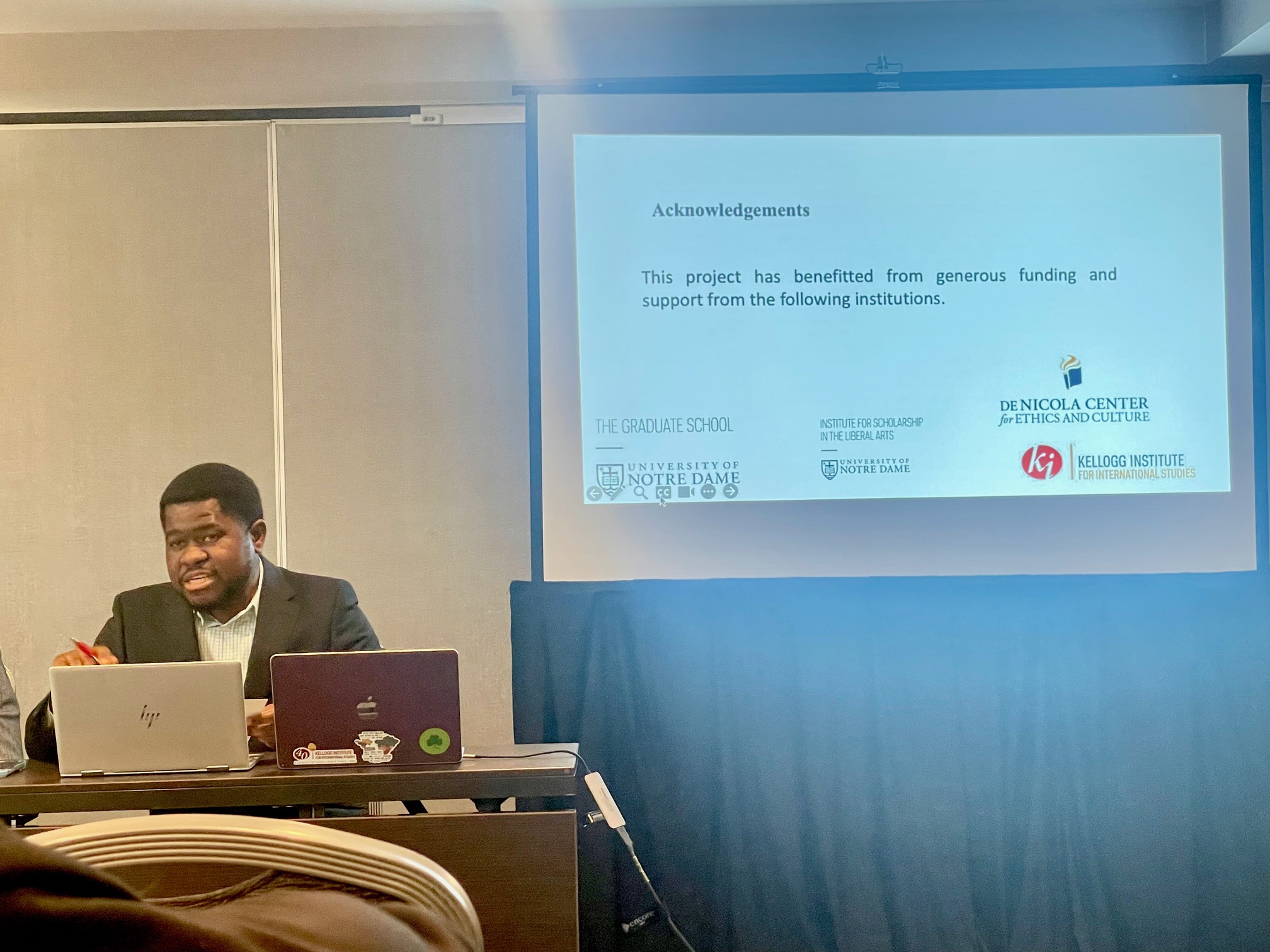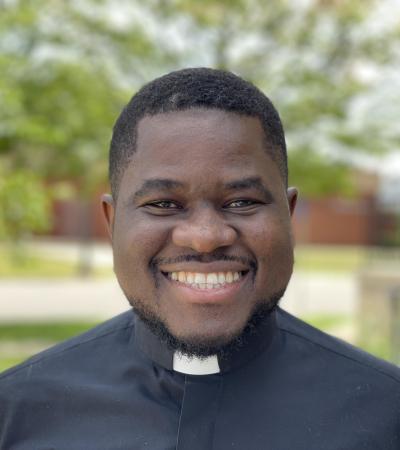African Studies Association (ASA) Annual Meeting; San Francisco, CA
Kellogg Institute Conference Travel Grants
Conference: 2023 African Studies Association (ASA) Annual Meeting in San Francisco, CA
November 30 – December 2, 2023
Presentation: “Thanksgiving, Ritual Development, and Socio Economic Precarity in Nigeria”
Report:
 I submitted a proposal and was invited to present my research at the 66th Annual Meeting of the African Studies Association, November 30-December 2, 2023. With generous funding from Kellogg, I was able to travel to San Francisco to attend the ASA meeting. On November 30, under the Ritual Imaginations panel, I presented my paper titled, “Thanksgiving, Ritual Development, and Socioeconomic Precarity in Nigeria.”
I submitted a proposal and was invited to present my research at the 66th Annual Meeting of the African Studies Association, November 30-December 2, 2023. With generous funding from Kellogg, I was able to travel to San Francisco to attend the ASA meeting. On November 30, under the Ritual Imaginations panel, I presented my paper titled, “Thanksgiving, Ritual Development, and Socioeconomic Precarity in Nigeria.”
As proposed, my presentation focused mainly on contemporary ritual developments in the Nigerian Catholic liturgy. I argued that contemporary dynamics of worship in Nigeria reveal the utilitarian value of religious rituals, forcing us to think of religion as more than a symbolic engagement between dependent humans and an all-sufficient God. Sampling data from my six-weeks-long ethnographic field research in Nigeria, I showed how, among Christians, the emerging ritual of thanksgiving* represents a tactic for responding to the social, economic, and religious precarity in Nigeria. For Nigerian Christians, thanksgiving is more than a symbolic gesture. It is thoroughly utilitarian, imbued with economic and social capital with real implications for the welfare and livelihood of religious practitioners – priests, catechists, parishioners, etc. By means of this decades-old ritual, Christians perform gratitude, dependence, and survival, and engender hope and solidarity in the context of Christian worship.
In presenting data from my ethnographic research, I showed a video of a typical ritual of thanksgiving from one of my field sites. From my data, I also showed that the frequency of thanksgiving, including the value of the gifts offered, has been greatly impacted by economic decline and food inflation, as attested by many of my research subjects. Such a development shows how religious rituals could reflect and be affected by the people’s existential conditions. More importantly, it highlights the utilitarian dimension of thanksgiving as something which hinges on a people’s material survival, as well as the survival of their religious rituals.
My presentation was very well received and generated incisive questions and suggestions from the scholarly audience. The theme of survival engendered a lot of useful conversations including the possibility of understanding thanksgiving as a therapeutic ritual. This is crucial for my next dissertation chapter in which I explore thanksgiving as a prosocial behavior under the emerging field of “the science of gratitude.” At the end of my presentation, I was approached by Dr. Maria Fahm-Arp, editor-in-chief of the Journal for the Study of Religion, who let me know she was excited about my work and would like to publish it in her journal. Other scholars also approached me, and we had great conversations on the corridors. I got a lot of positive feedback and suggestions which I am taking on board as I continue my research and writing.
*This ritual consists in a spirited liturgical procession to the sanctuary marked by the offering of material gifts (such
as livestock, food crops, liturgical paraphernalia, cash, etc.) as a token of gratitude to God for something nameable
that God has done for the thanksgivers.






